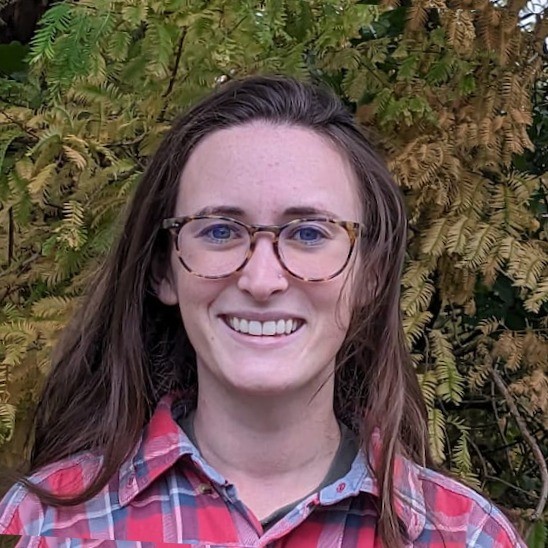Job-hunting as an international graduate: ‘Applying for jobs is all about perseverance’
-
 via Pixabay
via Pixabay
According to a recent report released by Nuffic, the Dutch organisation for internationalisation in education, more and more international students remain in the Netherlands after graduating. Most of them decide to stay for their career. But what is their experience of finding a job in the Netherlands like?
Graduating is probably one of the proudest moments of many students’ lives, but it can also be scary. Fresh graduates embark on a journey to find their place in the job market – not always an easy task, perhaps even less so for international students. Nonetheless, an increasing number of international students remain in the Netherlands after graduating, according to a recent report released by Nuffic, the Dutch organisation for internationalisation in education.
Damianos Nikou graduated from Radboud University with a master’s diploma in cyber security in October of 2024 and decided to stay in the Netherlands for his career and because of the central location of the Netherlands in Europe. But finding a job after studying was not a picnic. ‘I spent almost six months looking until I found my current job at SIDN, the company responsible for managing the Dutch internet domain .nl’ says the 28-year-old Greek graduate. He explains: ‘I sent more than fifty applications, and I received a lot of noes. I also did interviews with different companies and every time you get a no you feel a bit of a bang.’
Skillset
But what made the process so difficult? Nikou explains: ‘I work in Arnhem and this side of the Netherlands is more Dutch speaking. I do not speak Dutch yet, but that did not discourage me from also sending CVs in Dutch, for example. Those were never answered, but I tried. I also sometimes felt that often you get an extra point for knowing Dutch and then it did not matter if you had a certain practical skillset.’
The 28-year-old adds: ‘With my 3,5 years of experience being in the Netherlands, I believe that knowing Dutch opens a lot more doors. For my role I need to know Dutch too and I also want to learn it to be able to be part of the Dutch culture and to gain more trust with Dutch people.’
25-year-old Kate Kelley from the United States also spent a long time looking for a job. ‘You are going to get rejected over and over again no matter how great you are. Finding a job is all about perseverance and eventually, if you want it enough, you will get it.’
‘Sponsoring VISAs costs companies a lot of money, so they have no incentive to hire from outside the EU’
After receiving her Master’s diploma in particle and astrophysics, the American graduate was determined to continue with a PhD – a path that proved to be difficult. ‘Academia is very competitive; most positions I was applying for were getting a hundred or more applications from around the world. I got some interviews, but I was also passed over a lot. I only recently got offered a PhD position in Amsterdam, which I will be starting in September.’
For the 25-year-old the biggest issue was the lack of a European passport. ‘While I was applying for PhDs, I simultaneously was also applying for other non-academic jobs. Being a non-EU national is definitely a hinderance when you are trying to get into the corporate sector. Sponsoring VISAs costs companies a lot of money, so they have no incentive to hire from outside the EU.’
It does not help that non-EU nationals often run on a clock, the American explains. ‘After your studies your student VISA expires and if you want to stay and look for a job like me you get placed on an orientation VISA. It is a once in a lifetime opportunity and lasts for one year and you must find a job that is willing to sponsor your work VISA in that time if you want to stay.’
Higher wages
Sometimes job hunting can go surprisingly smooth. Diana Costa always made plans to go back to Portugal after her studies, but she unexpectedly found a fitting job here through her internship. The 24-year-old business administration graduate elaborates: ‘In August of 2023 I started my internships at a SaaS company S4D based in Amsterdam, and I told myself I would go back after that. But I really liked the company, and they liked me, so I got an offer from them and in February of 2024 I started in the same company as an employee.’
Despite the often time-consuming and long process of finding a job, the Netherlands remains an attractive location for international graduates. The appeal of career possibilities, high wages, and of course the possibility to get by in English are on top of the list of reasons. ‘I am fortunate that the international language of science is English, but I still wanted to be somewhere in Europe where I knew I could get around with English outside of work too’, Kelley explains. ‘I also think that the working conditions for PhD students in the Netherlands are better than in most other places in the world, the wages are much higher.’
‘I set aside that twice per week for three hours I would look for jobs and apply’
How did the three graduates their job search in the Netherlands? ‘LinkedIn was definitely my best friend’, Costa says with a smile on her face. ‘It was through LinkedIn that I found the company I work for now.’ She adds: ‘What helped me a lot was making a schedule for myself. For example, I set aside that twice per week for three hours I would look for jobs and apply.’
Nikou had a similar strategy, but he also asked advice from the university. ‘My first step was to go to the Career Services of Radboud. They can give you very good instructions and ideas on how to make your CV and improve your presentation of yourself to companies.’
Interviewing candidates
Kelley had a bit of a different experience due to her academic path. She elaborates: ‘With a PhD you have much more focus on your research and grades and less so on your work experience. Motivation letters are much more formal, rigid, and academic.’ The 25-year-old highlights this difference in her advice for graduating students embarking on their job search: ‘Really keep in mind the different tone and voice of an academic and non-academic application when you fill out your cover and motivation letters.’
‘You have to be respectful and kind – it is in your own interest’
Costa also points out the importance of tone in communications: ‘I am now involved in interviewing candidates, and it is so important how you reply to emails from your potential employers, for example about booking your interview. You have to be respectful and kind – it is in your own interest.’
Nikou’s suggestion is more general: ‘I think it is important to make a plan, to decide what you want to do after your studies and have targets in mind that you can follow step by step. And be proactive – network and poke people.’ He insightfully sums up the experience of job hunting: ‘Looking back on the time I spent looking for a job, I see it overall as a good experience. I worked on myself during this time; developed myself professionally and emotionally, tested myself and learned about myself as a person. This exploration of self is good because you need to be confident and show to your future employer that you believe in yourself.’






